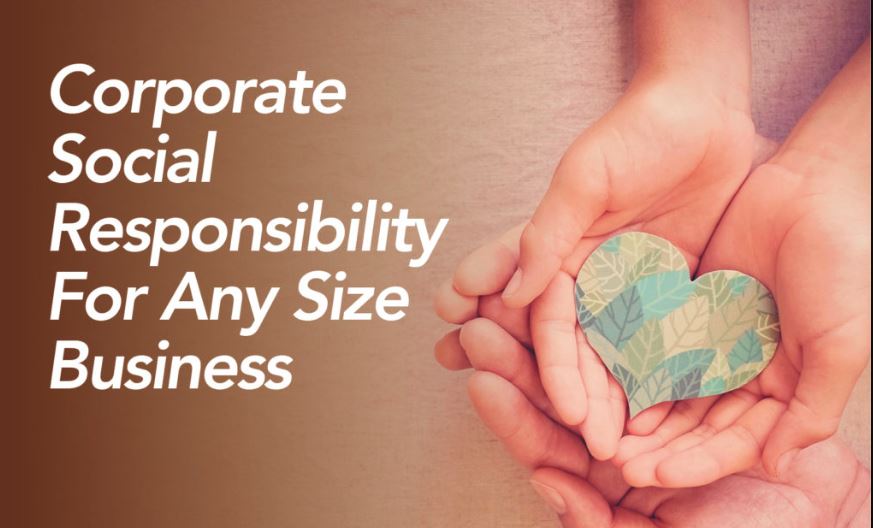
To answer this frequently asked question right from this outset will be noble. And to the question, is CSR limited ONLY to large corporations? The direct answer is: Not at all!
Large corporations may have more resources and more public recognition, but businesses of all sizes can be driven by CSR principles and participate in social responsibility activities like sustainable solutions and ethical materials sourcing. Even a sole proprietor can take actions like volunteering time in marginalized communities or donating products or money to nonprofit organizations.
Corporate Social Responsibility (CSR) has long been associated with large corporations wielding substantial financial resources and global reach. However, this perception fails to capture the diverse landscape of CSR initiatives, which extend far beyond the realm of big business. In debunking the myth that CSR is limited to large corporations, it becomes evident that organizations of all sizes and structures can play a pivotal role in driving positive social and environmental change.
Small and medium-sized enterprises (SMEs), often regarded as the backbone of economies, are increasingly recognizing the importance of integrating CSR into their business ethos. Despite operating on narrower profit margins, SMEs possess agility and flexibility that enable them to innovate in their approach to CSR. From supporting local communities through grassroots initiatives to prioritizing ethical supply chain practices, SMEs demonstrate that size does not dictate impact. In Nigeria, where SMEs form the bedrock of economic activity, their engagement in CSR contributes significantly to community development and sustainable growth.
Startups, characterized by their entrepreneurial spirit and disruptive innovation, are redefining CSR paradigms. As drivers of change, startups embed social and environmental considerations into their business models from inception. Whether through technology-driven solutions addressing societal challenges or collaborative partnerships with non-profit organizations, startups exemplify how CSR can be ingrained in organizational DNA from the outset. In Nigeria’s burgeoning startup ecosystem, social entrepreneurship is on the rise, underscoring the symbiotic relationship between business success and societal impact.
Again, non-profit organizations (NPOs) and civil society entities play a vital role in advancing CSR objectives, often serving as catalysts for collaborative action. While not driven by profit motives, NPOs leverage partnerships with businesses to amplify their impact and drive sustainable change. Through initiatives such as corporate volunteering programs and cause-related marketing campaigns, NPOs foster mutually beneficial relationships with corporate partners, thereby extending the reach and effectiveness of CSR efforts. In Nigeria, where civil society plays a pivotal role in advocating for social justice and inclusive development, the synergy between NPOs and businesses is essential for addressing complex societal challenges.
Albeit often overlooked, micro-enterprises and informal sector actors contribute to the fabric of CSR in unique ways. From street vendors supporting local artisans to informal savings groups promoting financial inclusion, these grassroots initiatives embody the spirit of community-driven development. While their contributions may seem modest in scale, their collective impact is significant, particularly in marginalized communities where formal employment opportunities are limited. Recognizing the inherent CSR potential within micro-enterprises underscores the importance of inclusive approaches to sustainable development.
In reality, CSR transcends the boundaries of corporate size and structure, encompassing a diverse array of stakeholders and initiatives. While large corporations undoubtedly wield considerable influence, the democratization of CSR empowers organizations of all sizes to drive positive change. Whether through grassroots initiatives, entrepreneurial ventures, or collaborative partnerships, the essence of CSR lies in its ability to foster inclusive and sustainable development. In Nigeria, where economic disparities persist alongside immense potential for growth, embracing a holistic approach to CSR is imperative for building resilient and equitable communities. By recognizing the inherent CSR capacity within organizations of every scale, we pave the way for a more inclusive and impactful approach to corporate citizenship.









